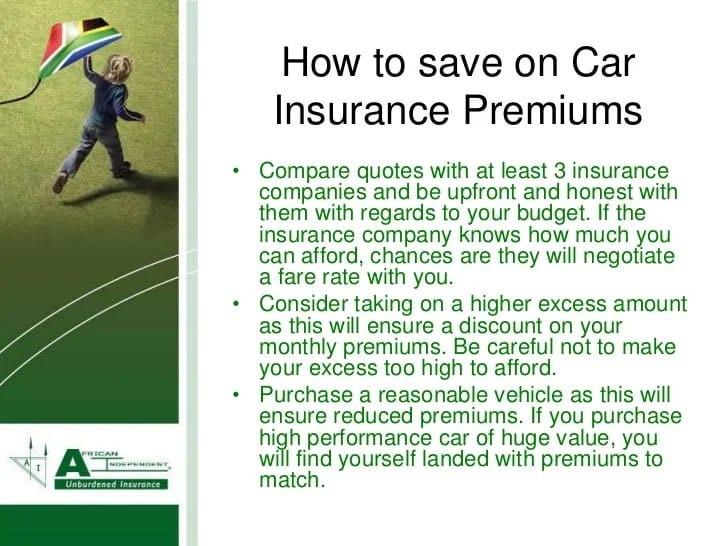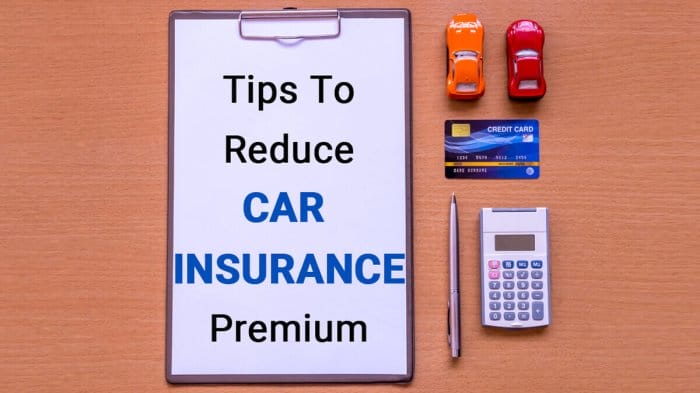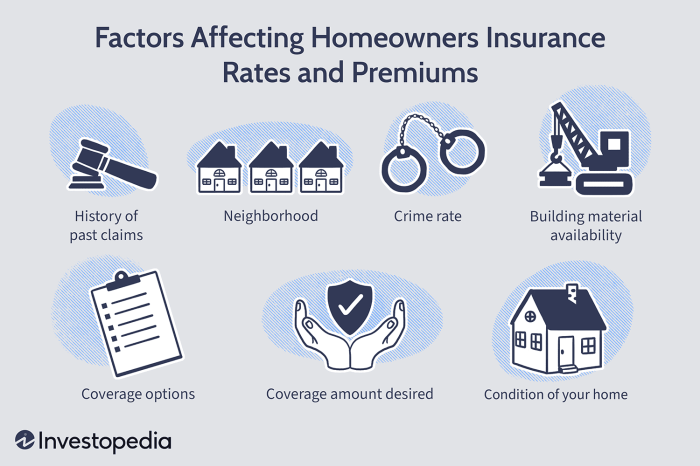In the realm of personal finance, managing insurance premiums is a crucial aspect that can significantly impact your budget. Whether it’s for your car, home, or health, insurance premiums can accumulate and become a substantial financial burden. This comprehensive guide delves into practical tips and strategies to help you keep your insurance premiums down, ensuring you get the coverage you need without breaking the bank.
From selecting the right coverage options to adopting safe driving habits, exploring loyalty rewards, and negotiating premiums, we’ll cover it all. By implementing these tips, you can take control of your insurance expenses and achieve peace of mind knowing that you’re adequately protected without overpaying.
Choosing Coverage

The types of coverage you select can significantly impact your insurance premiums. The key is to strike a balance between having adequate coverage and keeping costs affordable.
Assessing Needs
Start by assessing your needs and priorities. Consider factors such as your lifestyle, assets, and potential risks. This will help you determine the types of coverage and limits that are right for you.
Evaluating Policies
Compare policies from multiple insurance companies to find the best coverage options at the most competitive rates. Look for policies that offer discounts for bundling multiple policies or for having certain safety features.
Adjusting Coverage
As your life circumstances change, so should your insurance coverage. Regularly review your policies and make adjustments as needed. This will ensure that you have the right coverage at the right price.
Raising Deductible
Deductibles are the amount you pay out of pocket before your insurance coverage kicks in. By raising your deductible, you can lower your premiums. However, it’s important to find a balance between lower premiums and manageable deductibles.
One strategy for finding the right balance is to consider your financial situation and risk tolerance. If you have a limited budget, you may want to opt for a higher deductible to save money on premiums. However, if you’re concerned about being able to afford a large deductible in the event of a claim, you may want to choose a lower deductible.
How to Raise Your Deductible
Raising your deductible is a relatively simple process. You can typically do it by contacting your insurance company and requesting a change to your policy. In some cases, you may be able to raise your deductible online.
When you raise your deductible, it’s important to understand how it will affect your coverage. For example, if you have a $1,000 deductible and you file a claim for $2,000, you will be responsible for paying the first $1,000. Your insurance company will then pay the remaining $1,000.
Raising your deductible can be a good way to save money on insurance premiums. However, it’s important to weigh the potential savings against the risk of having to pay a larger deductible in the event of a claim.
Claims History

Your claims history is a crucial factor in determining your insurance premiums. A history of frequent or costly claims can lead to higher premiums, while a clean claims record can result in lower premiums.
To maintain a clean claims record and avoid unnecessary claims, consider the following tips:
Filing Claims Wisely
Before filing a claim, weigh the potential costs and benefits. Consider whether the cost of repairs or replacement is greater than your deductible. Also, consider the impact a claim may have on your premiums in the long run.
Preventing Claims
Taking steps to prevent claims can help keep your premiums down. This may include:
- Regularly maintaining your property and vehicles.
- Following safety guidelines and regulations.
- Installing security systems and taking other measures to reduce the risk of theft or damage.
Settling Claims Amicably
If you do need to file a claim, try to settle it amicably with the insurance company. This can help avoid lengthy and costly legal battles that can further increase your premiums.
Safe Driving Habits
Practicing safe driving behaviors can lead to lower insurance premiums. Insurance companies reward drivers who maintain a clean driving record and demonstrate responsible driving habits.
Defensive Driving
- Being aware of your surroundings and anticipating potential hazards.
- Maintaining a safe following distance and avoiding tailgating.
- Signaling your intentions clearly and obeying traffic laws.
- Avoiding distractions like using a cell phone or eating while driving.
Avoiding Risky Behaviors
- Refraining from speeding, aggressive driving, and illegal maneuvers.
- Avoiding driving under the influence of alcohol or drugs.
- Using seat belts and ensuring all passengers are properly restrained.
Maintaining a Clean Driving Record
- Avoiding accidents and traffic violations.
- Taking a defensive driving course to improve driving skills and knowledge.
- Participating in safe driver programs offered by your insurance company.
Vehicle Safety Features

The presence of safety features in your vehicle can significantly influence your insurance premiums. Insurance companies view vehicles with advanced safety features as less risky to insure, as these features can help prevent accidents or mitigate their severity.
Examples of safety features that can potentially reduce your premiums include:
Anti-Lock Brakes (ABS)
ABS prevents wheels from locking during braking, allowing drivers to maintain control of their vehicle and reducing the risk of skidding. ABS is a widely available and cost-effective safety feature that can significantly impact insurance rates.
Airbags
Airbags provide additional protection to occupants in the event of a collision. They help reduce the risk of serious injuries, which can lead to lower insurance premiums.
Electronic Stability Control (ESC)
ESC helps drivers maintain control of their vehicle by detecting and correcting skids. It can prevent accidents caused by loss of control, resulting in potential savings on insurance costs.
Forward Collision Warning (FCW)
FCW systems use sensors to detect potential collisions and alert drivers with visual, audible, or haptic warnings. By providing drivers with more time to react, FCW can help prevent accidents and reduce insurance claims.
Lane Departure Warning (LDW)
LDW systems monitor lane markings and alert drivers when they unintentionally drift out of their lane. This feature can help prevent accidents caused by lane departure and reduce insurance premiums.
Multi-Policy Discounts

Consolidating multiple insurance policies with a single provider can unlock substantial savings through multi-policy discounts. These discounts recognize the convenience and loyalty of policyholders who entrust multiple aspects of their insurance needs to one company.
Maximizing these discounts requires careful planning and understanding the policies offered by the provider. Some providers may offer discounts for bundling auto and home insurance, while others may extend these benefits to renters, life, and even pet insurance. Researching and comparing different providers’ offerings can help policyholders find the best combination of coverage and discounts.
Strategies for Maximizing Multi-Policy Discounts
- Evaluate Current Coverage: Before seeking multi-policy discounts, assess your existing insurance policies to ensure they align with your current needs and provide adequate coverage. Identify areas where coverage can be consolidated or enhanced.
- Research and Compare Providers: Dedicate time to researching and comparing various insurance providers offering multi-policy discounts. Analyze their coverage options, premium rates, customer service reputation, and any additional benefits they may provide.
- Bundle Eligible Policies: Once you have selected a provider, bundle all eligible insurance policies under their umbrella. This may include auto, home, renters, life, and pet insurance, depending on the provider’s offerings. By bundling these policies, you can potentially save a significant amount on your overall insurance premiums.
- Consider Additional Coverage: If you have additional insurance needs that are not currently covered, consider purchasing them from the same provider to further increase your multi-policy discount. This could include coverage for valuable items, identity theft protection, or travel insurance.
- Maintain Good Driving and Claims History: Maintaining a clean driving record and a claims-free history can also contribute to lower insurance premiums. Safe driving habits and responsible claims management can positively impact your overall insurance costs, potentially leading to even greater savings when combined with multi-policy discounts.
Loyalty Rewards

Insurance companies often offer loyalty programs that reward customers for staying with them over time. These programs can provide a variety of benefits, including premium discounts, cash back, and other perks.
There are several reasons why staying with the same insurer over time can lead to premium savings. First, insurance companies often offer discounts to customers who have been with them for a certain number of years. These discounts can be significant, and they can save you a lot of money on your insurance premiums.
Continuous Coverage
Maintaining continuous coverage with the same insurer can also help you avoid premium increases. When you switch insurance companies, you may have to pay a higher premium because the new company will not have any history with you. By staying with the same insurer, you can avoid this problem and keep your premiums low.
Bundling Policies
Another way to save money on your insurance premiums is to bundle your policies with the same insurer. This means insuring multiple vehicles or properties with the same company. Bundling your policies can save you money because the insurer will often give you a discount for insuring multiple policies with them.
Usage-Based Insurance

Usage-based insurance (UBI) is an innovative approach to auto insurance that bases premiums on how much and how safely a vehicle is driven. This pay-as-you-drive model can result in significant cost savings for drivers who are safe and infrequent users of their vehicles.
UBI programs typically involve the installation of a device in the vehicle that tracks various driving metrics, such as mileage, speed, braking patterns, and time of day driven. This data is then used to calculate the driver’s insurance premium.
Cost-Saving Benefits
The cost-saving potential of UBI programs can vary depending on the individual driver’s habits and the specific program offered by the insurance company. However, some common ways UBI can save drivers money include:
- Lower Base Rates: Drivers with good driving habits may qualify for lower base rates compared to traditional insurance policies.
- Pay-Per-Mile Plans: Some UBI programs offer pay-per-mile plans, where drivers are charged a certain amount for each mile they drive. This can be especially beneficial for drivers who don’t put a lot of miles on their vehicles.
- Safe Driving Discounts: UBI programs often offer discounts for drivers who maintain safe driving habits, such as avoiding speeding tickets and accidents.
Shopping Around

Comparing insurance quotes from multiple providers is a crucial step in securing the best coverage at a competitive price. This practice empowers you to make informed decisions and potentially save money on your insurance premiums.
To effectively compare coverage options and premiums, consider the following tips:
Get Multiple Quotes
- Obtain quotes from at least three different insurance companies.
- Utilize online comparison tools or work with an independent insurance agent who represents multiple carriers.
Compare Coverage Levels
- Ensure that you are comparing policies with similar coverage levels and limits.
- Review the policy details carefully to understand what is and is not covered.
Consider Deductibles and Premiums
- Evaluate the trade-off between higher deductibles and lower premiums.
- Choose a deductible that you can comfortably afford to pay in the event of a claim.
Look for Discounts
- Inquire about available discounts, such as those for multiple policies, safe driving habits, and vehicle safety features.
- Ask about any potential loyalty rewards or usage-based insurance programs.
Negotiating Premiums

Engaging in direct negotiations with insurance companies can yield significant savings on premiums. Insurance companies often possess flexibility in adjusting rates based on individual circumstances and risk profiles. Engaging in effective negotiations requires strategic preparation and a comprehensive understanding of one’s insurance needs and options.
Strategies for Negotiating Lower Premiums
- Research and Comparison: Before initiating negotiations, conduct thorough research to compare premiums offered by multiple insurance providers. Utilize online comparison tools and consult with insurance brokers to obtain competitive quotes. Armed with this information, you can approach your current insurer with a strong negotiating position.
- Compile Supporting Documents: Gather documentation that showcases your driving history, claims history, and any safety features installed in your vehicle. These documents provide tangible evidence to support your case for a lower premium.
- Emphasize Loyalty: If you have been a loyal customer with your current insurer for an extended period, highlight this fact during negotiations. Long-standing relationships often warrant consideration for premium discounts or other concessions.
- Request a Policy Review: Schedule a meeting with your insurance agent to review your policy in detail. During this meeting, inquire about potential discounts or coverage adjustments that could result in premium savings.
- Consider Bundling Policies: If you have multiple insurance policies, such as auto and home insurance, consider bundling them with the same provider. This often leads to discounted premiums for each policy.
- Negotiate Add-Ons: While negotiating premiums, inquire about the possibility of adding optional coverage or riders to your policy. This can include roadside assistance, rental car reimbursement, or other valuable benefits that may be available at a discounted rate during negotiations.
- Be Prepared to Walk Away: If negotiations reach an impasse and the insurer is unwilling to offer satisfactory terms, be prepared to consider switching to a different provider. This demonstrates your willingness to seek better rates elsewhere and may prompt the insurer to reconsider their offer.
Final Conclusion
In conclusion, keeping your insurance premiums down requires a proactive approach, careful consideration of your coverage needs, and a willingness to explore various options. By following the strategies Artikeld in this guide, you can make informed decisions that align with your financial goals and ensure you’re getting the best value for your insurance policies.
Remember, it pays to be an informed consumer and to regularly review your coverage to ensure you’re getting the protection you need at a price you can afford.
FAQs
Q: Can I lower my insurance premiums by opting for a higher deductible?
A: Yes, choosing a higher deductible can potentially lower your insurance premiums. However, it’s important to strike a balance between a lower premium and a manageable deductible amount that you can comfortably afford to pay in case of a claim.
Q: How does my claims history impact my insurance premiums?
A: A history of frequent claims can lead to higher insurance premiums. Maintaining a clean claims record by driving safely and avoiding unnecessary claims can help keep your premiums down.
Q: What are some examples of safe driving habits that can lower my car insurance premiums?
A: Safe driving habits that can positively impact your car insurance premiums include obeying speed limits, avoiding distracted driving, and maintaining a clean driving record free of accidents and violations.
Q: Can I save money by bundling multiple insurance policies with the same provider?
A: Yes, many insurance companies offer discounts when you bundle multiple policies, such as car and home insurance, with them. Bundling can be a cost-effective way to save money on your overall insurance expenses.
Q: How can I negotiate lower premiums with my insurance company?
A: You can negotiate lower premiums by maintaining a good claims history, asking for discounts, and shopping around for quotes from multiple insurance providers. Being a loyal customer and inquiring about loyalty programs can also lead to potential savings.



